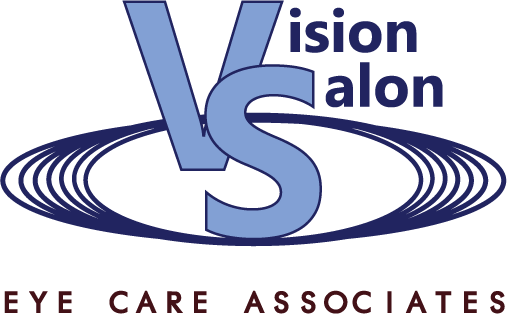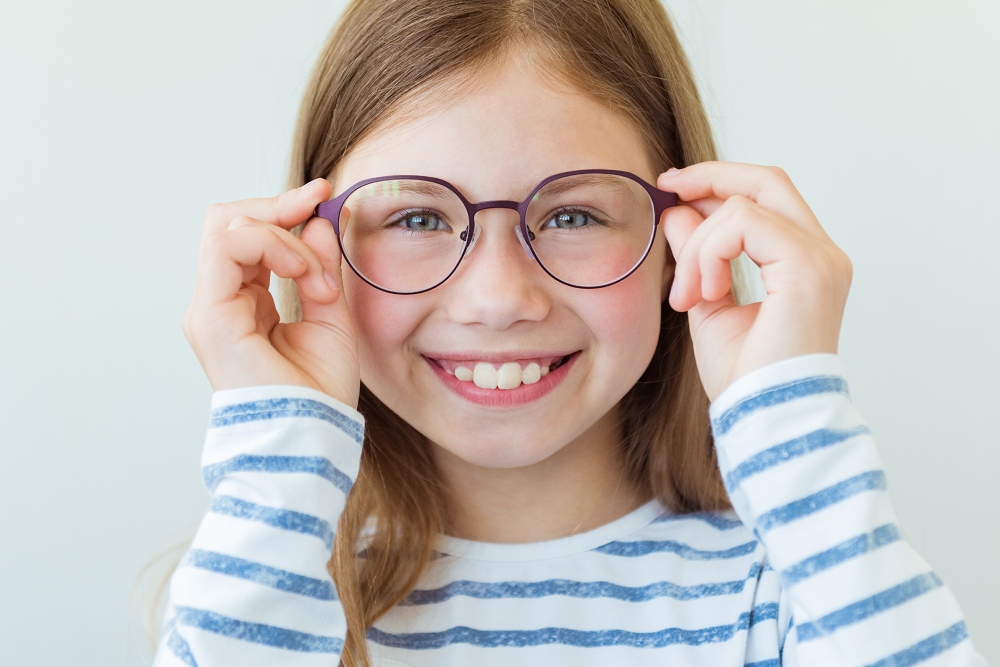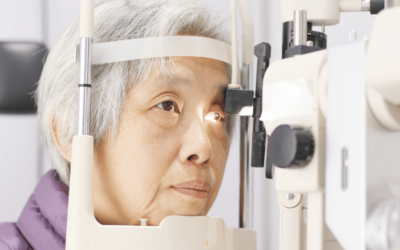Myopia, also known as nearsightedness, is a common eye condition that makes distant objects look blurry while close objects stay clear. If you or your child has myopia, you may be wondering if it’ll get worse with time. In this blog, we’ll discuss what myopia is, when it typically slows down and stops progressing, and how Vision Salon Eye Care Associates can help you manage it effectively.
Understanding myopia
Myopia happens when the eyeball is too long or the cornea is too curved, causing light to focus in front of the retina instead of directly on it, leading to blurry distance vision. While the exact cause of myopia is still being studied, it’s believed that both genetics and the environment contribute to it. Parents with myopia are more likely to have kids who also develop the condition. Also, factors like too much close-up work, not spending enough time outdoors, and an unhealthy diet can contribute to myopia.
When does myopia typically slow down and stop?
Myopia typically starts in childhood or the teenage years and tends to stabilize between the ages of 20 and 30. Once it stabilizes, it’s unlikely to worsen significantly as you get older. However, in some cases, myopia might still get worse during adulthood, leading to a higher risk of developing eye diseases such as glaucoma, cataracts, and retinal detachment. Some factors, like having a higher initial prescription or a family history of myopia, may increase the chances of progression in adulthood.
How to effectively manage myopia
While myopia typically slows down and eventually stabilizes, it’s crucial to keep an eye on the condition throughout your life to catch any vision changes and prevent possible complications. At Vision Salon Eye Care Associates, we specialize in myopia management and offer a variety of treatment options, including orthokeratology, multifocal contact lenses, MiSight contact lenses, and low-dose atropine drops.
Orthokeratology is a treatment that uses specially designed rigid gas permeable contact lenses to reshape the cornea overnight. This reshaping temporarily corrects myopia and can reduce the progression of the condition. Multifocal contact lenses can also be used to manage myopia. These lenses have different prescriptions in different zones of the lens that allow for clear vision at multiple distances.
MiSight contact lenses are daily disposable soft contact lenses that have been clinically proven to reduce myopia progression in children. Low-dose atropine drops have also been shown to slow the progression of myopia. These drops are usually prescribed for children with progressive myopia (myopia that gets worse over time) and are used once a day.
In conclusion, while myopia does typically slow down and stop as we age, it’s still important to take care of our eyes and manage any potential progression. At Vision Salon Eye Care Associates, we offer a range of treatment options to help reduce strain and slow the progression of myopia. If you have any concerns about your vision or are looking for myopia management for your child, schedule an appointment with us to learn more.





